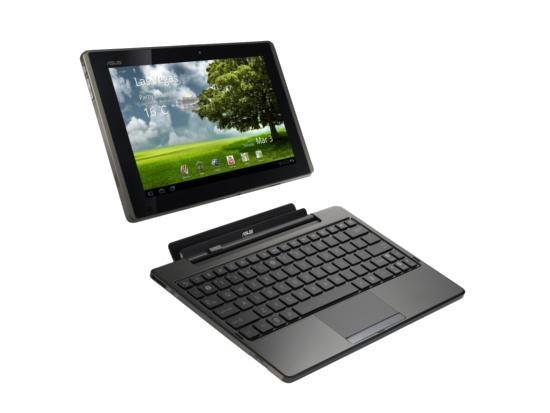Though they may be the hot ticket item of the year, tablets are still a new product that is far from being a proven technology. They aim to reduce the need to carry a laptop everywhere and many like myself find the portable quasi-computers a perfect supplement to our very capable smartphones. Those who rest on the other side of the fence find tablets to be an unnecessary waste of a half a grand or better. But what if a tablet could replace your PC?
The thought of these "blown-up smartphones" replacing our home computers is a far-fetched one, but it isn't out of the realm of possibility. Their functionality and capabilities grow with each update and with every generation. Portability and strong, rapidly advancing application support are only two of the many reasons tablets have a leg up on those archaic machines we call PCs.
Tablets have already taken a bite out of computer sales. They now come in a multitude of sizes, in different forms, and with several choices in specifications and price range. Before long, there will be a size, color, and price that will suit the needs of anyone and everyone. That said, tablets are still in their infancy. They lack some key ingredients that keep the tablet and computer world from colliding head-on. Peripherals.
From the time computers were made comercially available, they have had a set of common peripherals that are necessary when using them: a keyboard, mouse or touchpad, etc. Tablets come armed with touchscreens, which removes the need for a physical keyboard or any alternative form of input for navigation. But software keyboards and capacitive touchscreens have their limitations; they aren't going to cut it if manufacturers want them to replace the common, household computer.
The whole tablet trend is new and manufacturers are taking the "throw it at the wall and see what sticks" approach. Most have been falling on to the same path, making products that carry identical specifications and look strikingly similar. But one manufacturer has taken a different approach. ASUS has a series of tablets heading to market equipped with keyboards or offered with a keyboard companion.

Starting tomorrow, ASUS will be breaking into the US tablet market. The Eee Pad Transformer will be released at several major retailers nationwide. It will be available at a surprisingly low price ($400-500) and will be offered with a hardware keyboard dock for an additional $150. Some of you may be thinking that $150 is ridiculous for a keyboard attachment, but throw in the fact that it has two USB ports, an SD card reader, a touchpad, and can extend the battery life of the tablet to nearly double (claiming 16 hours of use), you may just reconsider.
I understand that not everyone will be a fan of the keyboard attachments that we're seeing more and more of, just like the large amount of people who don't care to give tablets a chance. At first, I didn't quite see the point of a hardware keyboard either; I thought they defeated the purpose of having a tablet.
After spending just a couple hours with the ZAGGmate for my iPad, I had a change of heart. The keyboard alone made me use the iPad over my XOOM and stick with the original iPad over the second generation. In fact, I now write a majority of my articles on the iPad using my ZAGGmate.
Seeing that most of these keyboards are only options, I imagine several manufacturers will jump on this bandwagon as well. But I also believe some will take the ASUS approach under consideration and they may just equip some tablets with silde-out keyboards or some other form factors.
What do you think? Will manufacturers start offering tablets with removable, physical keyboards, or will they stick to the slab form factor and keep it simple? Would you be more prone to buy a tablet if it came with a removable keyboard over one without?